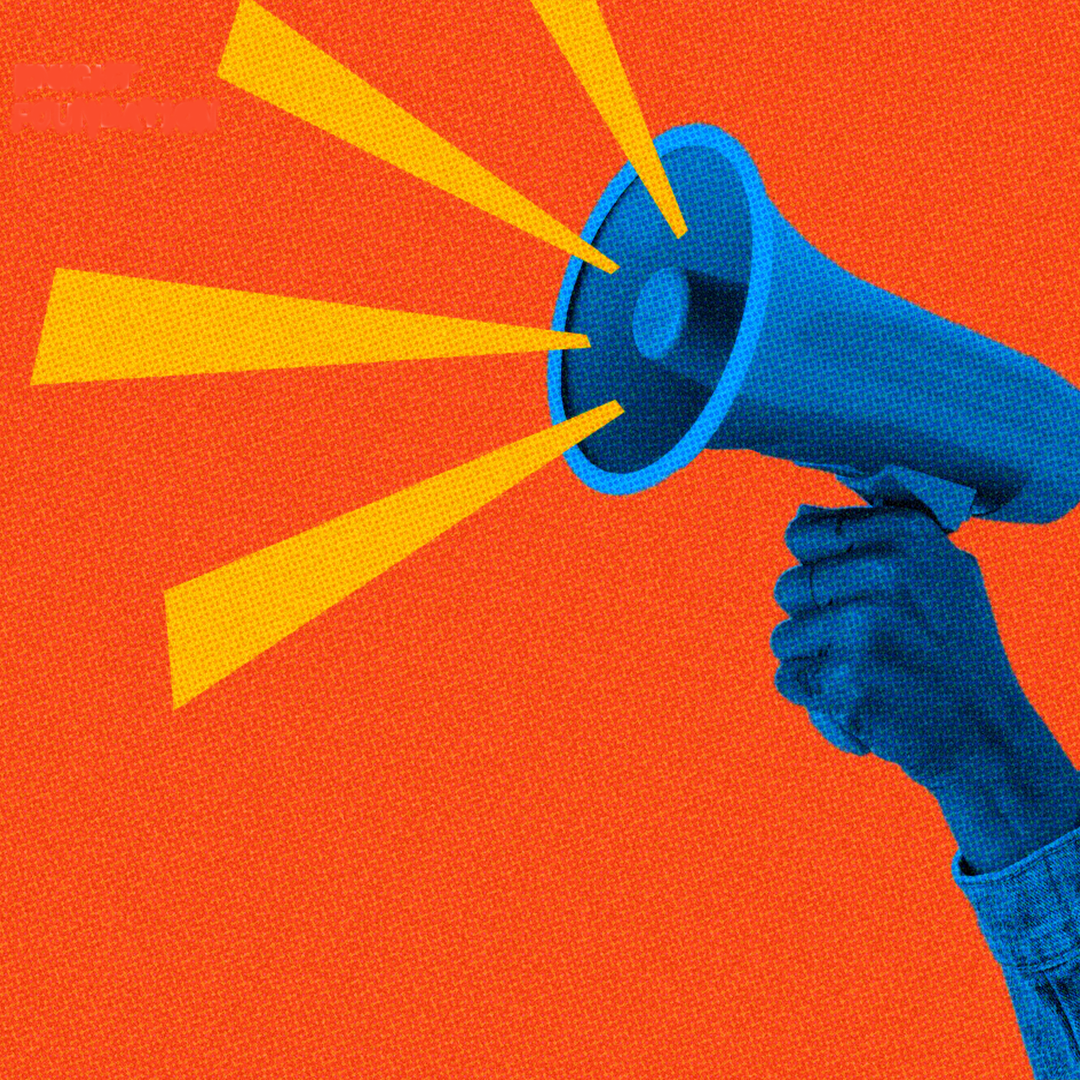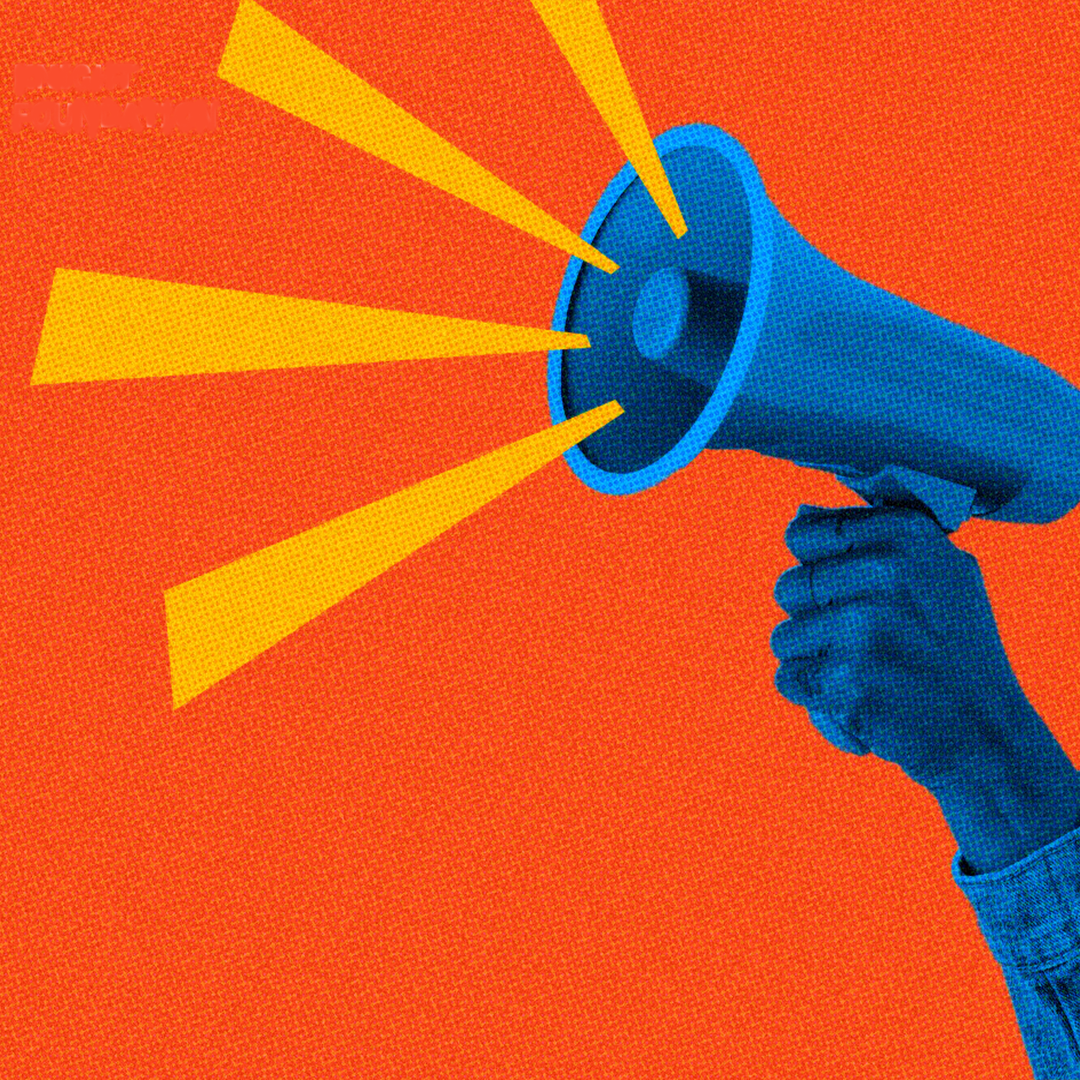A look at Key Trends in Student Speech Views Since 2016
A Knight Foundation-Ipsos study from the Knight Free Expression research series
“College Student Views on Free Expression and Campus Speech 2024” continues Knight Foundation’s research series tracking college student views on the First Amendment and free expression, which began in 2016. This work seeks to elevate the voices of students and understand their complex attitudes on free expression, especially within the college setting. This latest report is particularly timely as the 2024 election nears and as the war in Gaza has sparked contentious protests on campuses across the country, bringing the specific complexities of free speech to the center of the national debate. This research was conducted before the spring 2024 campus protests, thus not capturing students’ responses to these events. [1]
This Knight Foundation-Ipsos report continues the investigation into the complexities of free expression on campus and highlights the evolving views of students. This survey shows that the story of free speech on campus continues to be nuanced and characterized by lived experiences, good-faith efforts and genuine student interest to build a constructive learning environment.
During this tumultuous time, it’s more important than ever that university leaders are equipped with data that elevates the views of students to guide their campus decision-making. The findings described in this report cover many of the rich insights contained in this expansive dataset. Higher education administrators, the public, and researchers are welcome to continue exploring this publicly available survey database.
Read the full report here.
Download the topline and methodology here. For access to the full raw data set, please reach out to [email protected].
Key Findings
Students believe free speech is essential to American democracy, but confidence in the security of this right has plummeted since 2016.
While 9 in 10 college students continue to feel that citizens’ free speech rights are very important to them, fewer students believe their freedom of speech is secure in 2024, down 30 percentage points from 2016. Notably, since 2021 the increased concern about security of free speech is driven by Democratic students.
Discomfort with the speech environment on campus is rising, and 7 in 10 students say speech can be as damaging as physical violence.
The percentage of students who felt uncomfortable due to speech about race, gender, religion, or sexual orientation on campus has almost doubled, from 25% to 44%, since 2017. More than half (55%) report feeling uncomfortable due to political speech. However, there has been little change in reported rates of students feeling physically unsafe (15%) due to speech on campus.
Students want to be exposed to a wide range of viewpoints, though tension persists between promoting free expression and protecting students from hateful or threatening speech.
Most students continue to support allowing all types of speech, even offensive speech. Few students are in favor of restrictive speech measures on campus such as speech codes. However, students do draw lines, with a majority saying that both hate and threatening speech should be restricted from campus. [2]
Few students report they would take part in disruptive actions toward invited speakers they oppose.
Eight percent of students report they would engage in disruptive actions – either trying to stop a speech ahead of time or disrupt it during – to halt a speaker they oppose. The large majority of students report they would take no action (51%), boycott the event (23%), or other non-disruptive actions.
Compared with white students, Black, Asian, and multiracial students report challenging experiences and diverging opinions of campus speech.
Half or more of these students report feeling uncomfortable on campus due to something someone else said about race, ethnicity, religion, gender, or sexual orientation. A decisive majority of Black students (85%) also agree that hate speech should not be allowed on college campuses, in line with Asian, Hispanic, and multiracial students.
Students feel self-censorship hampers educational value.
Two in 3 students say self-censorship limits educationally valuable conversations on campus, and 2 in 3 report self-censoring on some topics during classroom discussions. This is particularly true when it comes to discussing topics of gender or LGBTQ+ issues, racial issues, or religion.
Students crave opportunity to engage in constructive dialogue.
Most students are unaware of programs at their institution to promote constructive dialogues. Among those who definitively report that their schools do not have such programs, a clear majority favor creating programs to help foster healthy debate.
Students are increasingly skeptical of social media’s role in productive conversations.
Only 1 in 4 students feel the dialogue that occurs on social media is usually civil, down from 40% in 2016. Only half feel comfortable sharing opinions online, with many believing social media stifles free expression due to fear of attacks or shaming.
KEY CHARTS
A selection of key student views on free expression and campus speech. Full findings are in the body of the report.
KEY POPULATIONS
Experience with and attitudes toward speech vary widely among different student groups. The greatest differences exist among partisanship and race, and less so by gender or other demographic groupings. The following is a brief summary of the major findings and how opinion has changed over time, including the degree to which students have a formed opinion at all.
Democratic students
Half of Democratic students believe that freedom of speech is secure in America today, down from about 3 in 5 Democratic students who felt that way in 2021. Since 2021, Democratic students have been driving the increased concern about the security of free speech. Democratic students are split on whether to allow all types of speech on campus, even speech that is offensive. Similar to 2021, more Democratic than Republican or independent students are in favor of protecting students by prohibiting speech they may find offensive, something that was also true in prior Knight-Gallup research.[3] Since 2019, a large majority of Democratic students have believed that colleges should be able to restrict the use of racial slurs on campus. When it comes to other speech policies, about 3 in 4 support the creation of safe spaces on campus, close to half support the creation of speech codes that could limit offensive or biased speech, and about 2 in 5 favor schools disinviting a speaker because of their views. These views are consistent with previous surveys. A majority of Democrats and independents feel that their campus climate prevents people from saying what they believe for fear of offending others, although they are less likely to feel this way than Republicans.
Independent students
Independent students express growing concerns about the fundamental security of free speech in America today while indicating their wariness of colleges limiting speech on campus. Just about 2 in 5 independent students feel that free speech is secure today, down from under half of independents in 2021, and down even more from the 3 in 4 who felt this way in 2016. Yet a large majority feel that the First Amendment protects people like them, a view that has held steady since 2019. A majority believe that colleges should allow students to be exposed to all forms of speech. Opinion is split among the remaining minority with equal numbers either believing that colleges should foster a protective environment or having no opinion on the matter. Much as in previous surveys, few support colleges disinviting controversial speakers or instituting speech codes. A majority feel that their campus climate limits free expression, a view that has remained roughly the same since 2019.
Republican students
Few Republican students feel that freedom of speech is secure today, with about 1 in 3 feeling this right is secure. However, that has increased since 2021, when only about 1 in 4 felt that freedom of speech was secure. Still, that is down substantially from the 2 in 3 Republicans who felt free speech was secure in 2016. About 2 in 3 Republican students feel that their campus prevents people from saying things they believe because others might find it offensive, roughly in line with where Republican students stood in 2021 on this question. A strong majority (7 in 10) say it is more important for colleges to allow students to be exposed to all types of speech, even if they find it offensive or biased, than to prohibit offensive or biased speech. This is consistent with 2021, but down from 2019. A majority (53%) – albeit a smaller share than either Democratic or independent students – believe that colleges should be allowed to prohibit the use of racial slurs on campus, in line with attitudes from 2021. Republicans are more divided around whether safe spaces should be allowed on campus – half favor this – but come down firmly against schools disinviting controversial speakers, something that was also true in 2019 and 2021. Half oppose schools instituting speech codes that could restrict offensive or biased speech.
White students
White students tend to favor allowing all types of speech on campus, over protecting students by prohibiting certain speech. They are least likely to report having felt unsafe or uncomfortable on campus because of comments about their identity, as compared with Black and Hispanic students. This has not changed substantially since 2021. Overall, over half of white college students believe that freedom of speech is under threat in America today. Yet a large majority feel that the First Amendment protects people like them, a view that has held steady since 2019. When it comes to free expression on college campuses, white students are more likely than their Black or Hispanic counterparts to agree that schools should favor exposing students to all forms of speech, rather than protecting them from speech they may f ind offensive or biased. This was also true in 2019 and 2021. A majority agree that their campus climate prevents some people from saying things they believe because others might find it offensive, in line with attitudes among Black and Hispanic students.
Black students
A growing number of Black students favor a more protective campus environment. In 2021, 36% of Black students favored a campus environment that protects students by prohibiting speech they may find offensive or biased, up from the 28% who favored this in 2019. Now, 43% favor this more protective speech environment over allowing students to be exposed to all types of speech even if they may find it offensive or biased. Black students, in particular, are among the most supportive of speech restrictions, including being the most likely to say hate speech should not be legally protected (71%), and the most likely to report that “people like them” have a harder time exercising their free speech rights, a sentiment that has grown since 2021. A decisive majority of Black students (85%) also agree that hate speech should not be allowed on college campuses, in line with Asian, Hispanic, and multiracial students. In both in 2019 and 2021, a majority of Black students felt that colleges should restrict the use of offensive racial slurs on campus. This year, around half of these students report feeling uncomfortable on campus due to something someone else said about race, ethnicity, religion, gender, or sexual orientation. Notably, 1 in 5 Black students also report feeling unsafe on campus because of something someone said about their race, ethnicity, or religion, statistically the same as Hispanic students. Only 1 in 10 white students report the same.
Hispanic students
Hispanic students’ views of campus speech, and personal experiences, fall somewhere between the differing views of Black and white students. Half of Hispanic students say colleges should allow students to be exposed to all types of speech even if they may find it offensive or biased over having a more protective speech environment that limits speech students may find offensive or biased. Hispanic students fall between white and Black students on their view about allowing students to be exposed to all types of speech over protecting students by having a more prohibitive policy. Hispanic students align closely with white students on perceptions that free speech is under threat; just under half agree. A majority of Hispanic students also feel that colleges should be able to restrict offensive racial slurs, in line with attitudes among white students, with 2 in 3 supporting this, even as more Black students support colleges being able to restrict racial slurs. A plurality of Hispanic students oppose disinviting controversial speakers, though after that, Hispanic students are split between having no opinion on the subject and favoring disinviting a controversial speaker. Like Black students, a plurality (43%) favor instituting speech codes to restrict potentially offensive or biased speech on campus, while far fewer white students (25%) agree. Likewise, close to 7 in 10 Hispanic students favor the creation of safe spaces on campus, less than the share of white students who do but statistically no different from Black students. Sixteen percent of Hispanic students report feeling unsafe on campus because of something someone said about their race, ethnicity, or religion, statistically the same as Black students. Only 1 in 10 white students report the same.
Male and female students
For the most part, male and female students are aligned in their attitudes and experiences of free speech, with a few key differences. Overall, a majority of both male and female students say that free speech rights are important to American democracy. Now, male students are more likely than female students to strongly agree that free speech is an important part of American democracy. Nearly twice as many female students (19%) as male students (10%) report that they have felt personally unsafe on campus because of something someone said in reference to their race, ethnicity, or religion. Additionally, far more female students (51%) than male students (35%) report feeling uncomfortable in a class, living area, public space, or other part of campus because of something someone said about their race, ethnicity, religion, gender, or sexual orientation, something that was also true in 2021 and 2019.
[1] The 2024 Knight Foundation-Ipsos survey was conducted March 7-28, 2024.
[2] In the survey hate speech was defined as an attack based on someone’s race, religion, gender identity, or sexual orientation. This definition was used in order to maintain trend with previous surveys. It should be noted that this could be interpreted to cover abstractly hateful speech or unprotected conducts such as harassment.
[3] Knight-Gallup Free Expression Research, 2016, 2017, 2019




